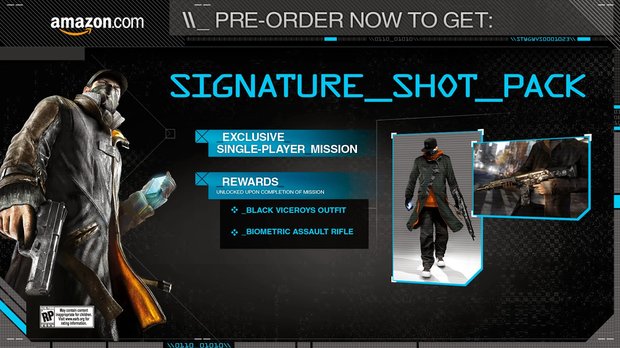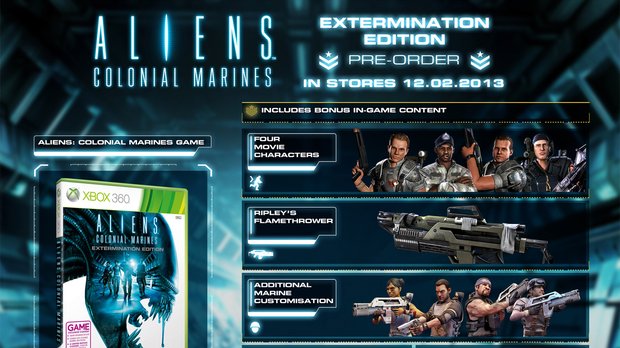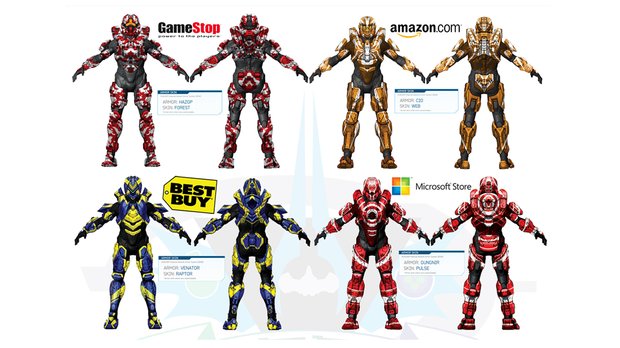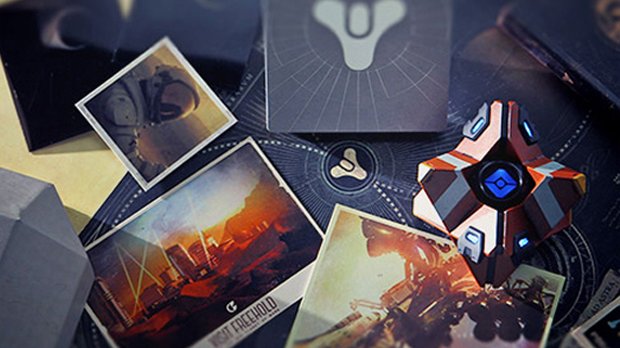Pre-order sales are tanking, but theres a way to make them appealing again
This week, Activision CEO Eric Hirshberg told investors to "reset expectations as it relates to pre-orders overall," and not just for his company. "You guys can see the same thing we see industry-wide, which is that there's been sort of a secular downturn [in] pre-orders." That might seem like an odd thing to say given the numbers Destiny's supposedly pulling, but in the long-run, Hirschberg appears to be right: if these estimations from 2010 versus 2014 are even slightly accurate, pre-orders aren't what they used to be. Thing is though, many players are excited about just that.
Scroll to the comments section on any article about Hirshberg's remarks (if you dare), and you will find a sea of people who are happy to hear that the pre-order system may fall apart. Their reasons are numerous and capslocked, but scour through them and you'll start to see an interesting pattern emerge. Yes, many gamers are glad that pre-order numbers are shrinking so they can see the whole thing fail. Why? Because they want revenge.

It's no secret that there’s a strong sense of dissatisfaction with pre-orders among the gaming crowd, which boils down to players feeling duped or patronized. These days, many pre-order incentives involve downloadable content, like an in-game outfit or an extra mission--none of which you'll care about after five minutes of playing. Somehow, a "special" gun that barely changes your overall experience seems like a pitiful reward for pledging $60 and good faith.
This is usually forgivable when the game is good; you're getting to play an awesome title on day one, so any extra goodies are just a bonus. But when the game's mediocre or outright bad? That's not blood coursing through your veins, it's condensed rage. Retailers can add insult to injury through chain-exclusive content, letting each claim that their offer is superior to the other guy's without actually giving buyers a better deal. Throw in other problems like day-one patches, launch DLC, and the fact that it'll all probably be bundled in a Complete Edition mere months after release? At that point you're not sure which burned you worse: your fury or the game company.

All of that bad blood culminates in a lot of anger among gamers, but quietly saving your money for the bargain bin doesn't feel like enough. Publishers stand to gain a lot from pre-orders, because it's not only money in the bank--it's free market research into the profitability of a potential sequel and merchandising. Gamers expect something equally valuable in return--not just for our money, but for our trust.
So when a company puts out a shoddy product, reneging on their end of the deal and running away with your hard-earned cash, it’s hard to just shrug and move on. No--you feel cheated and duped, and you want to see that company fail. And what better way than for the system to crumble beneath them? If game companies want to keep this lucrative ship afloat, they'll need to present something better than what's on offer.

Luckily, that may not be so difficult. The main issue is that digital bells and whistles are a poor pay-off to justify a pre-order, leaving consumers feeling played and unwilling to buy. But they are willing to flash their wallets for special editions. For example, the Destiny Ghost Edition has sold so well that retailers haven't been able to meet demand, and sets are going for up to seven times their original value on eBay. Even at prices that more than double the cost of the base game, collector's editions still sell, thanks entirely to the associated swag. Learning from that example could do a lot to fix the pre-order problem.
Sign up to the GamesRadar+ Newsletter
Weekly digests, tales from the communities you love, and more
While no one wants pre-orders to jump to $150 so they can include a sick Evolve monster statue (well, maybe not no one), adding physical tokens at no extra cost could do a lot to revitalize the system. I’m talking things like Dishonored's tarot deck or Skyrim's very classy world map. They aren’t super expensive to produce, and often give consumers the nudge they need to part with their cash, so it works out for all parties. While such trinkets won't make up for a crappy game, they're much more interesting than lackluster in-game costumes or starter items. Plus, they're more likely to keep consumers happy, which is really the end goal.

The pre-order system can be a win-win setup when used correctly. Right now it’s structured to give publishers and retailers maximum payout for minimal effort, and bad blood keeps players' purse-strings pulled tight. There will always be hurt feelings when a pre-ordered game turns out to be shlock, but the entire notion of pre-ordering doesn't have to suffer for it. Take away the nickel-and-diming digital content, stop pushing forgettable bonuses, and give players something tangible for their trouble. If publishers do that, they could go a long way towards saving a business practice that dramatically benefits them. It's all about respecting your customers: give them what they want, and they'll do the same for you. Back scratching, and all that.
Former Associate Editor at GamesRadar, Ashley is now Lead Writer at Respawn working on Apex Legends. She's a lover of FPS titles, horror games, and stealth games. If you can see her, you're already dead.



